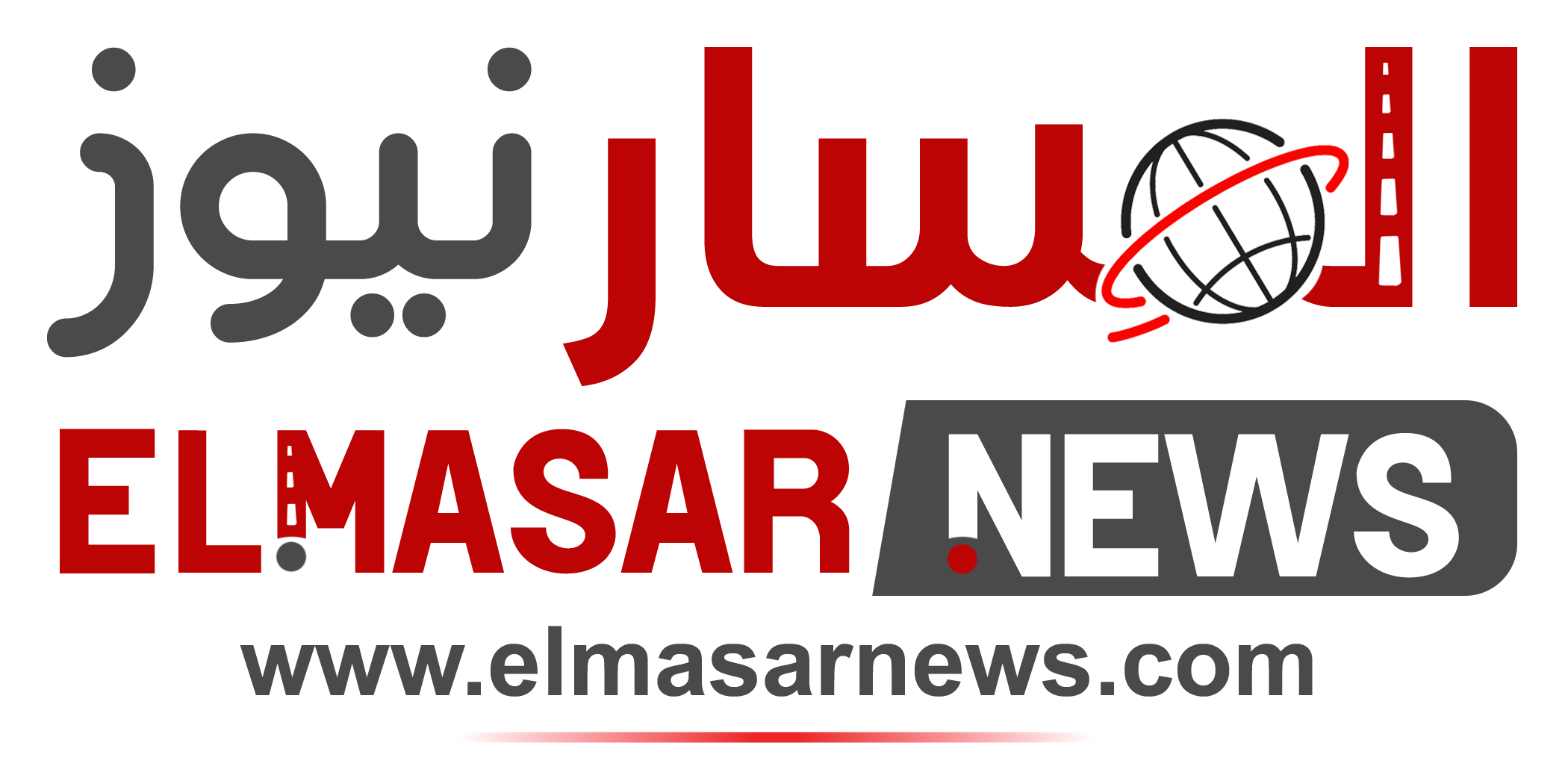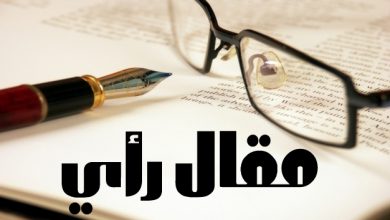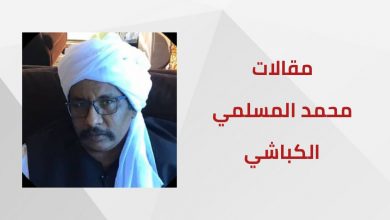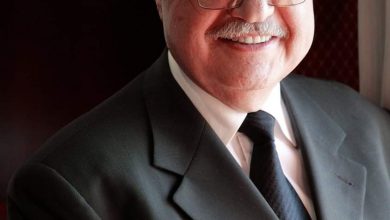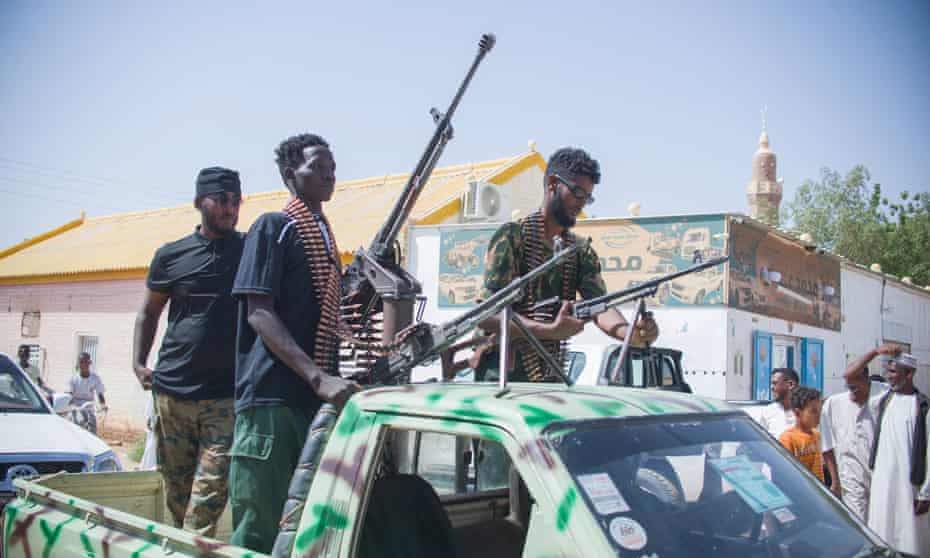
حسام محجوب
أصبحت الحرب في السودان واحدة من أسوأ الأزمات الإنسانية الجارية في العالم. في أكثر قليلاً من عام من القتال بين القوات المسلحة السودانية (SAF) وقوات الدعم السريع (RSF)، نزح 6.8 مليون شخص داخلياً، وفر 2 مليون شخص من البلاد، ويحتاج 24.8 مليون شخص، أي ما يقرب نصف السكان، إلى مساعدات إنسانية عاجلة.
دولة االإمارات العربية المتحدة هي اللاعب الأجنبي الأكثر استثماراً في الحرب. في الواقع، بدون دعمها المباشر والشامل، لم تكن قوات الدعم السريع لتتمكن من شن الحرب بهذه الدرجة.
يحتل السودان مكانة مركزية في استراتيجية الإمارات في إفريقيا والشرق الأوسط، الهادفة إلى تحقيق الهيمنة السياسية والاقتصادية مع كبح الطموحات الديمقراطية لشعوب المنطقة. منذ عام 2015، قامت الإمارات بتجنيد مقاتلين من القوات المسلحة والدعم السريع للانضمام إلى صراعها في اليمن. وهي المستورد الرئيسي لذهب السودان، ولديها خطط بمليارات الدولارات لتطوير موانئ على طول ساحل البحر الأحمر السوداني. ومن خلال دعمها لقوات الدعم السريع في السودان، قوضت الإمارات الانتقال الديمقراطي الذي تلا الإطاحة في عام 2019 بالدكتاتور عمر البشير، الذي حكم السودان لمدة 30 عاماً.
عند اندلاع الحرب، أفادت التقارير بأن الإمارات أنشأت عمليات لوجستية لإرسال أسلحة إلى قوات الدعم السريع عبر شبكاتها في ليبيا وتشاد وجمهورية أفريقيا الوسطى وجنوب السودان وأوغندا وميليشيات حفتر وفاجنر. وأفادت أيضاً بأنها أرسلت الأسلحة والإمدادات تحت غطاء المعونات الإنسانية. بالإضافة إلى ذلك، تعتبر الإمارات مركزاً لإدارة أعمال قوات الدعم السريع وعمليات التمويل واللوجستيات والعلاقات العامة الخاصة بهذه القوات. ومصابو الدعم السريع يُنقلون جواً للعلاج في مستشفىً عسكري في أبوظبي. ويُقال إن محمد حمدان دقلو (حميدتي)، قائد قوات الدعم السريع، زار بعض الدول الأفريقية على متن طائرة إماراتية تابعة لشركة مملوكة لأحد أفراد الأسرة الحاكمة وهو مستشار للرئيس الإماراتي.
وجد تقرير للأمم المتحدة في يناير أن الاتهامات بتقديم الإمارات الدعم العسكري لقوات الدعم السريع موثوقة. وقد نفت الإمارات هذا الدعم، لكن العديد من المشرعين الأمريكيين أشاروا إليه علناً. بينما كان المسؤولون الأمريكيون والبريطانيون أكثر حذراً بتركيزهم بدلاً عن ذلك على “الأدوار السلبية” للجهات الخارجية أو الشركاء الذين يدعمون قوات الدعم السريع.
ومع ذلك، كانت الإمارات متشددة في رفض أي اتهامات، سواءً كانت صريحةً أم لا. في أبريل الماضي، قامت بغضب بإلغاء اجتماعات وزارية مع المملكة المتحدة لأنها لم تدافع عنها في اجتماع للأمم المتحدة بشأن السودان.
في هذه الأثناء، المجاعة والأمراض والقتال تهدد المدنيين. علاوةً على ذلك، لم يفعل ما يسمى بالمجتمع الدولي سوى القليل لوقف ذلك، حيث تم جمع 12% فقط من مبلغ 2.7 مليار دولار مطلوب للمساعدة في السودان. نمط استهداف المدنيين، وحرق القرى، وارتكاب جرائم قتل جماعي وعنف جنسي تم رصده في جميع المناطق التي سيطرت عليها قوات الدعم السريع. ذكرت منظمة هيومن رايتس ووتش أن قوات الدعم السريع ارتكبت إبادةً جماعيةً، وجرائم ضد الإنسانية، وجرائم حرب واسعة النطاق، وتطهيراً عرقياً. ارتكبت القوات المسلحة السودانية نصيبها من جرائم الحرب، حيث قصفت المدنيين بشكل عشوائي، واعتقلت وعذبت وقتلت المدنيين أيضاً. وكانت الولايات المتحدة الأمريكية قد أعلنت رسمياً أن كلا من القوات المسلحة السودانية وقوات الدعم السريع قد ارتكبتا جرائم حرب، وارتكبت قوات الدعم السريع جرائم ضد الإنسانية وتطهيراً عرقياً.
منذ الأسبوع الماضي تصاعد القتال للسيطرة على الفاشر، آخر معقل للقوات المسلحة السودانية في منطقة دارفور الغربية. لجأ مئات الآلاف من الناس هناك بعد فرارهم من الفظائع التي ارتكبتها قوات الدعم السريع في أجزاء أخرى من دارفور، وهي منطقة تعادل مساحتها ضعفي حجم المملكة المتحدة. قد يكون للمعركة من أجل الفاشر تداعيات كبيرة على المنطقة. انتصار قوات الدعم السريع يمنحها السيطرة الفعلية على معظم الولايات غرب نهر النيل، مما يمثل أكثر من نصف مساحة السودان وسكانه وموارده.
آفاق السلام ضئيلة. منصة جدة هي الجهد الأكثر اعترافاً به لتحقيق السلام، وهي جولات متعددة من المحادثات نظمتها الولايات المتحدة والسعودية، وبدأت بعد فترة وجيزة من اندلاع الحرب. ومع ذلك، فشلت القوات المسلحة السودانية وقوات الدعم السريع باستمرار في الوفاء بالالتزامات الواردة في إعلان مايو 2023 لضمان حماية المدنيين واحترام القانون الإنساني الدولي. كما لم يلتزموا بالعديد من الاتفاقيات لوقف إطلاق النار، وتسهيل إيصال المساعدات الإنسانية، أو اتخاذ إجراءات لبناء الثقة، مثل إخلاء المنازل المدنية التي يحتلها مقاتلو قوات الدعم السريع.
يعمل توم بيريلو، المبعوث الأمريكي الخاص للسودان، على إحياء منصة جدة، والتركيز على بناء وتنسيق الإرادة السياسية في المنطقة لدفع اتفاقية سلام، والاستعانة بجهود القادة الأفارقة والعرب الرئيسيين في المحادثات.
ومع ذلك، فلدى السودان تاريخ من الحروب الطويلة ومحادثات السلام التي لا تنتهي، والخوف أن تصبح جدة إضافة أخرى إلى قائمة “العهود والمواثيق التي تم نقضها” ما لم يبتعد المجتمع الدولي عن نموذجه الفاشل المتمثل في الضغط من أجل اتفاقيات سلام تعيد إنتاج العنف والاستبداد. يجب محاسبة جنرالات القوات المسلحة السودانية وقوات الدعم السريع على جرائمهم العديدة ضد الشعب السوداني، ويجب ألا يتم مكافأتهم مرة أخرى بالسماح لهم بأن يكونوا جزءاً من أي ترتيب يسعى لإنهاء الحرب.
الأهم من ذلك، يجب على المجتمع الدولي مواجهة الدور الضار للإمارات في الصراع، الذي نفذته بلا عقاب، مستغلة تحالفاتها مع كل من الغرب وروسيا. إذا لم يحدث ذلك، يخاطر السودان بالغرق في حالة من الحرب الدائمة.
The Guardian published this article by me on Friday. The link is in the first comment.
It’s an open secret: the UAE is fuelling Sudan’s war – and there’ll be no peace until we call it out
The Emirates is arming and supporting one side in the conflict, but UK and US officials have shied from confronting it
Husam Mahjoub
The war in Sudan has become one of the worst ongoing humanitarian crises in the world. In a little over a year of fighting between the Sudanese Armed Forces (SAF) and the Rapid Support Forces (RSF), there have been 6.8 million people internally displaced, 2 million fleeing the country, and 24.8 million, almost half the population, in dire need of humanitarian assistance.
The United Arab Emirates is the foreign player most invested in the war. In fact, without its direct and all-around support, the RSF would not have been able to wage war to the same extent.
Sudan is key to the UAE’s strategy in Africa and the Middle East, aimed at achieving political and economic hegemony while curbing democratic aspirations. Since 2015, it has sourced fighters from both factions to join its conflict in Yemen. It is the primary importer of Sudan’s gold and has multibillion-dollar plans to develop ports along Sudan’s Red Sea coast. By supporting the RSF in Sudan, it has undermined the democratic transition that followed the 2019 ouster of Omar al-Bashir, Sudan’s dictator for 30 years.
Upon the outbreak of war, it reportedly established logistical operations to send weapons to the RSF through its networks in Libya, Chad, Central African Republic, South Sudan, Uganda and the Haftar and Wagner militias. It has reportedly disguised armament and supplies as humanitarian aid. In addition, RSF business, finance, logistics and PR operations are carried out from the UAE. Injured fighters are reportedly airlifted to be treated in an Abu Dhabi military hospital. And Mohamed Hamdan Dagalo (Hemedti), the RSF commander, is said to have visited a few African countries on board an Emirati airplane belonging to a company owned by an Emirati royal and adviser to the president.
A UN report in January found the accusations of UAE military support to RSF credible. The UAE has denied this support, but many US lawmakers have publicly called it out. US and British officials have been more cautious, tending to focus on the “negative roles” of external actors or partners that support the RSF.
Nonetheless, the UAE has been bullish in rejecting the accusations, explicit or not. Last April, it furiously cancelled ministerial meetings with the UK because it did not leap to its defence at a UN meeting about Sudan.
Meanwhile, famine, diseases and fighting are closing in on civilians. Furthermore, the so-called international community has done little to stop it, with only 12% of the $2.7bn aid sought for Sudan having been raised. The pattern of targeting civilians, torching villages, and committing mass murders and sexual violence has been witnessed in all the areas that came under RSF control. Human Rights Watch suggested RSF has committed genocide, crimes against humanity, widespread war crimes and ethnic cleansing. SAF has committed its share of war crimes, bombing civilians indiscriminately, and arresting, torturing and killing civilians too. The US officially determined that both the SAF and RSF have committed war crimes, crimes against humanity and ethnic cleansing.
Fighting for control of El Fasher, the last SAF stronghold in the western region of Darfur, escalated last week. Hundreds of thousands of people had taken refuge there after fleeing the atrocities committed by RSF in other parts of Darfur, an area twice the size of the UK. The battle for El Fasher may have significant implications for the region. A win for the RSF gives it effective control over most states to the west of the Nile River, which represents more than half the area, population and resources of Sudan.
Peace prospects are dim. The most recognised effort to achieve peace can be seen in the Jeddah platform: multiple rounds of talks organised by the US and Saudi Arabia, which began shortly after the war broke out. However, the SAF and RSF have consistently failed to honour the commitments set out in the May 2023 declaration to ensure civilians are protected and international humanitarian law is respected. Nor have they honoured several agreements for ceasefire, facilitation of the delivery of humanitarian assistance, or confidence-building measures, such as vacating civilian houses occupied by RSF combatants.
Tom Perriello, the US special envoy for Sudan, proposes reviving the Jeddah platform, focusing on building and aligning political will in the region to compel a peace deal, and enlisting the efforts of key African and Arab leaders in the talks.
However, Sudan has a history of prolonged wars and endless peace talks, and Jeddah risks becoming another entry in its list of “too many agreements dishonoured” unless the international community pivots away from its failed model of pressuring for peace deals that reproduce violence and authoritarianism. The generals of both the SAF and RSF must be held accountable for their numerous crimes against the Sudanese people, and should not be rewarded again by allowing them to be part of any arrangement sought to end the war.
Most crucially, the international community must confront the UAE’s detrimental role in the conflict, which it has carried out with impunity, leveraging its alliances with both the west and Russia. If not, Sudan risks descending into a state of perpetual war.
Husam Mahjoub is co-founder of Sudan Bukra, an independent nonprofit Sudanese TV channel
